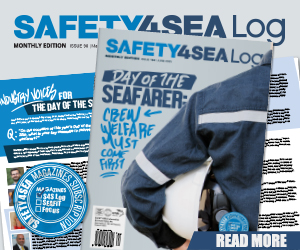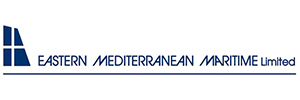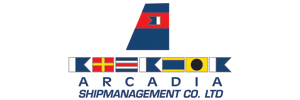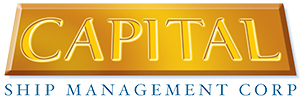NorthStandard on its third and final briefing of the series “The Right Crew” sheds light to crew retention, an essential component of safety and cost efficiency in an industry facing shortages and requiring ongoing review of crew incentives.
According to NorthStandard, a strong retention rate is essential because it contributes directly to safer ship operations and greater cost efficiency for the company. Crew retention is a major issue in a highly competitive international industry faced with a continuing shortfall in the supply of officers, with ship operators needing to have a continuous review of key incentives in an attempt to retain experienced and loyal crew.
Retain the right crew – Seven tips to think about:
#1 Website crew area
An online crew facility allows each crew member to log in confidentially to access their personal account. Features may include a career timeline with training and promotion details, training records, performance appraisals, sea time calculator, list of ships sailed on, projected leave and next ship details, a crew satisfaction survey, and wage or salary projections.
#2 Modern communications are a necessity not a luxury
Seafarer surveys have shown that access to modern communications for those serving on board ships is highly desirable. As such if you want to encourage retention access to email and the internet for seafarers should be a priority. It will also of course assist when attracting crew.
Where to start? Ideally every crew member who joins your ships should have either:
- a company email system private email address that will work on any ship and whilst ashore
- access to the internet to log on to an individual’s private email
Most crew are part of the digital age and lack of access to normal social interaction at sea can harm morale and performance. Free or low-cost internet and email are essential for retention, if costly, crew may leave for operators offering better access.
Policies must align with onboard safety rules and manage social media use, considering both copyright concerns and the positive impact on company image and recruitment.
#3 Mentoring
Mentoring is not only a way of improving job competence by passing on valuable experience but also a way of improving pastoral care on board. Every crew member should have a nominated on-board mentor, whether it’s a new joiner or a chief officer about to be promoted. Chief engineers and Masters might be mentored from ashore. Without a mentoring system a promotion can be very daunting for some people – they go home a second mate and return as a Chief Officer often with no previous mentoring into their new role.
Having a mentor as a ‘career guide’ can be a good incentive to improve retention. Mentoring should also include the idea of job swapping. Some famous shore-side companies have a policy of job swapping people on a Friday. This means that as a whole the organisation operates more smoothly because everyone understands the operations better.
#4 Criminalisation and piracy
Reports of seafarers being criminalised or kidnapped are a cause for concern for crew. All crew and their families will face these issues but the risk and the outcome is very different for those that do not have adequate support from the company before, during and after an incident.
A policy based on very strong security provision and very assertive support from management ashore will help to allay the concerns of seafarers and their families and assist with both recruitment and retention.
#5 Pastoral care on board
Effective pastoral care on board starts with strong face-to-face communication to build an ‘on-board family’. Training should go beyond competence to include leadership skills, starting with Masters and extending to all senior officers. All crew share a duty of care, with higher expectations for senior ranks and should understand their role in supporting each other.
Furthermore, ongoing training should address recognising and responding to mental health issues. Regular presence and engagement by leadership, combined with awareness of the impact of instant communication from home, are key to maintaining crew wellbeing.
#6 Exit interviews
Exit interviews can be a valuable tool for improving crew retention by identifying why people leave and spotting patterns that may point to needed changes in policy, pay, or benefits. Even though they can be uncomfortable, most departing employees are willing to give constructive feedback and want to leave on good terms. Given the close-knit nature of the shipping industry, respectful communication during exit interviews is essential. A simple, good-natured conversation focused on gathering useful insights is a good starting point.
#7 Rewards for long service
Rewards for long service can increase retention. These may include:
- A direct contract of employment.
- Payment of study fees. Perhaps 50% reimbursed upon successful completion and 50% after 6 months. This above average benefit would be subject to the signing of an agreement to stay with the ship operator for an agreed period after successful completion of a period of study.
- Reward long service with a better leave ratio.
- Reward long service with shorter voyages.
- Loyalty bonuses or incremental wage increases paid to staff employed for a period of time.
- Celebrate the commitment of long servers by recognizing them in company publications.
Once the ‘right crew’ has been attracted, selected and recruited the aim should be to retain them in your employment. Otherwise you have lost on your investment in time and money.
…NorthStandard highlights.

































































